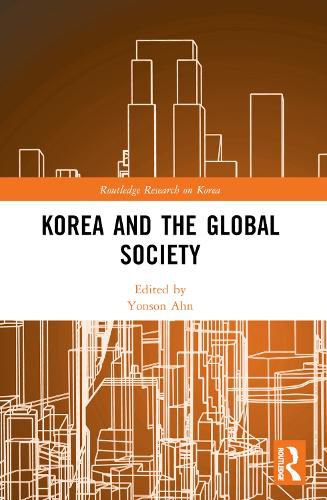Readings Newsletter
Become a Readings Member to make your shopping experience even easier.
Sign in or sign up for free!
You’re not far away from qualifying for FREE standard shipping within Australia
You’ve qualified for FREE standard shipping within Australia
The cart is loading…






This book explores multiple fields and disciplines around the theme of South Korea’s engagement and exchanges with global society focusing on development cooperation, migration and the media.
The core of this volume is an analysis of South Korea’s engagement and reciprocity in global society that has developed out of the country’s shift from aid recipient and migrant sender to aid provider and migrant host. The contributions approach this through the three main aspects of overseas aid, cross-border contacts, and interplay of identities in the mediascape. These themes represent an interdisciplinary array of research that introduces and analyses interconnected and concurrent instances of reciprocity, convergence, tension, inclusion, or exclusion in navigating South Korea’s interactional relations with global society, spanning regions and countries including Africa, Asia, the USA, and Germany.
This book will be valuable reading to students and researchers from a wide range of disciplines including sociology, gender studies, ethnic studies, media studies, IR, and area studies, in particular Korean studies.
$9.00 standard shipping within Australia
FREE standard shipping within Australia for orders over $100.00
Express & International shipping calculated at checkout
This book explores multiple fields and disciplines around the theme of South Korea’s engagement and exchanges with global society focusing on development cooperation, migration and the media.
The core of this volume is an analysis of South Korea’s engagement and reciprocity in global society that has developed out of the country’s shift from aid recipient and migrant sender to aid provider and migrant host. The contributions approach this through the three main aspects of overseas aid, cross-border contacts, and interplay of identities in the mediascape. These themes represent an interdisciplinary array of research that introduces and analyses interconnected and concurrent instances of reciprocity, convergence, tension, inclusion, or exclusion in navigating South Korea’s interactional relations with global society, spanning regions and countries including Africa, Asia, the USA, and Germany.
This book will be valuable reading to students and researchers from a wide range of disciplines including sociology, gender studies, ethnic studies, media studies, IR, and area studies, in particular Korean studies.